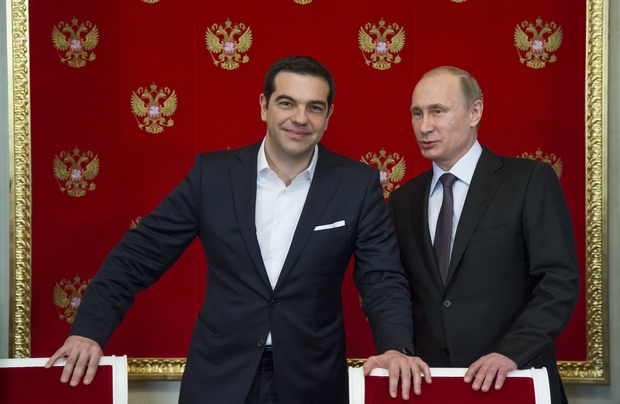
ATHENS — Greek officials are pulling out all the stops — including feelers to China and Russia — to find 15 billion euros (US$16.2 billion) to avoid default, according to Greek media reports.
The weekly newspaper Karfi quoted government officials as saying that the country hoped China would lend 10 billion euros, in the form of a prepayment for future use of the port of Piraeus and as an advance on its investment in Greece's railway operator.
The country is also hoping for an additional 3 billion to 5 billion euros from Russia, according to the weekly Agora, also quoting officials. That would serve as an advance payment for fees linked to a planned gas pipeline dubbed Turkish Stream. The pipeline would bring Russian gas to the Greek-Turkish border.
Greek Prime Minister Alexis Tsipras spoke with Russian President Vladimir Putin earlier this month about extending the pipeline onto Greek territory so the gas could then be shipped on to Central Europe.
The German news website Spiegel Online reported that a deal to that effect could be signed as early as Tuesday.
A senior Greek official said signing the deal could "turn the page" for Greece, which has flirted with default for years, ever since it turned out that past governments had chronically under-reported the country's debts.
However, questions linger, such as whether the European Union would approve the deal to bring the pipeline into Greece and whether there is a way to release money for a project that has yet to receive such approval.
Greece is desperately trying to pull together a list of credible reforms and cost-cutting proposals to present to its creditors — the EU, the European Central Bank and the International Monetary Fund (IMF) — in exchange for the release of a 7.2-billion-euro tranche of funding from its bailout package that has been held up amid worries that Greece is not making the changes necessary to stay solvent.
The future of Greece's economy will likely be the focus of talks between various finance ministers gathering over the weekend at the IMF's annual spring meeting in Washington.